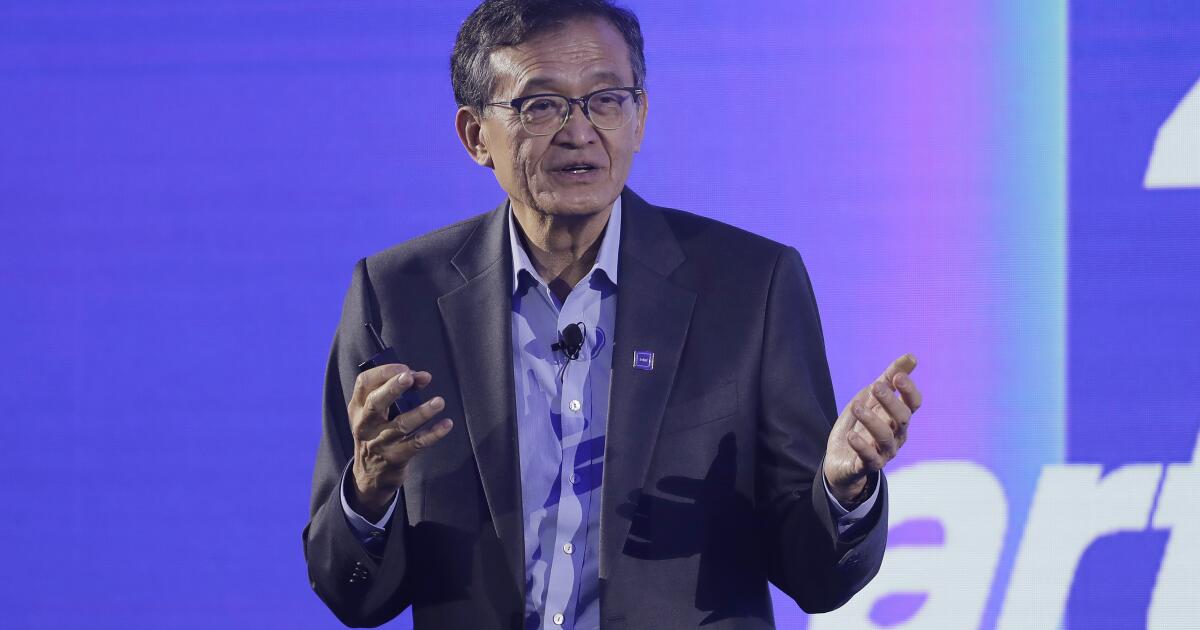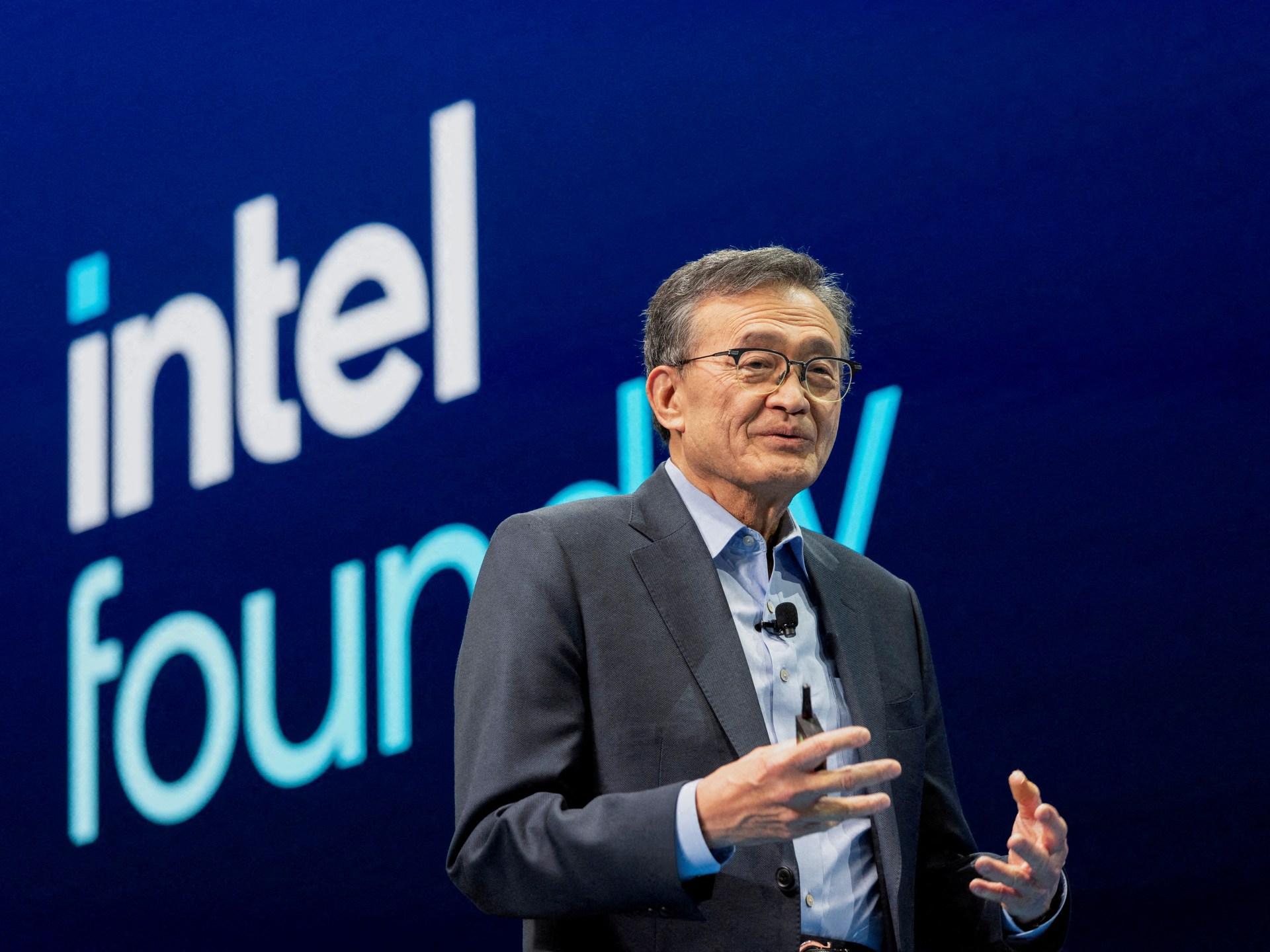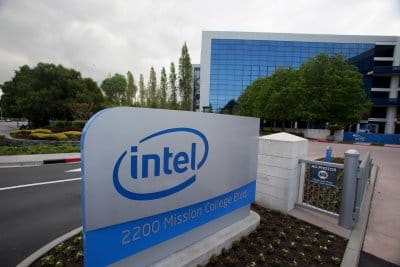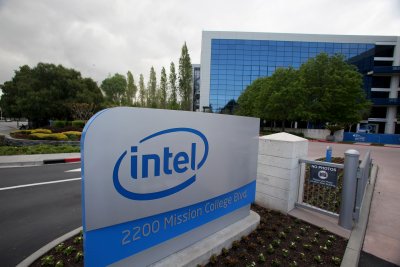Intel’s stock tumbles after President Trump says its CEO must resign
By AP with Eleanor Butler
Published on
08/08/2025 – 9:20 GMT+2

ADVERTISEMENT
Intel shares slumped on Thursday after President Donald Trump said in a social media post that the chipmaker’s CEO needed to resign.
“The CEO of Intel is highly conflicted and must resign, immediately,” Trump posted on Truth Social. “There is no other solution to this problem. Thank you for your attention to this problem!”
Trump made the post after Senator Tom Cotton sent a letter to Intel Chairman Frank Yeary, expressing concern over CEO Lip-Bu Tan’s investments and ties to semiconductor firms that are reportedly linked to the Chinese Communist Party and the People’s Liberation Army. Cotton asked the board whether Tan had divested his interests in these companies to eliminate any conflicts of interest.
It’s not immediately clear if Tan, who took over as Intel’s CEO in March, has done so.
In a statement, Intel said it was “deeply committed to advancing US national and economic security interests”. The firm said it was making “significant investments aligned with the President’s America First agenda”.
Cotton’s allegations
“In March 2025, Intel appointed Lip-Bu Tan as its new CEO,” Cotton wrote in the letter. “Mr. Tan reportedly controls dozens of Chinese companies and has a stake in hundreds of Chinese advanced-manufacturing and chip firms. At least eight of these companies reportedly have ties to the Chinese People’s Liberation Army.”
Cotton specifically called out Tan’s recent leadership of Cadence Design Systems in the letter. According to the US Department of Justice, Cadence, agreed in July to plead guilty to resolve charges that it violated export controls rules to sell hardware and software to China’s National University of Defense Technology, which is linked to the Chinese military.
Tan was the CEO of Cadence when the company violated the rules between 2015 and 2021.
The US Department of Commerce’s Bureau of Industry and Security also fined Cadence $95 million for the same breaches, saying Cadence admitted that “employees of its Chinese subsidiary knowingly transferred sensitive US technology to entities that develop supercomputers in support of China’s military modernisation and nuclear weapons programs.”
Cadence did not immediately respond to AP requests.
The digital race
Tan previously launched the venture capital firm Walden International in 1987 to focus on funding tech start-ups, including chip makers.
China’s state media has described Tan as “actively” devoted to Chinese and Asian markets, having invested not only in the Taiwan Semiconductor Manufacturing Company, but also China’s state-owned enterprise SMIC, which seeks to advance China’s chipmaking capabilities.
The demands made by Trump and Cotton come as economic and political rivalries between the US and China increasingly focus on the competition over chips, AI and other digital technologies that experts say will shape future economies and military conflicts.
Cotton, the chairman of the Senate Intelligence Committee, has raised concerns that Chinese spies could be working at tech companies and defence contractors, using their positions to steal secrets or plant digital backdoors that give China access to classified systems and networks.
On Thursday the Arkansas Republican wrote to the Department of Defense, urging Defense Secretary Pete Hegseth to ban all non-US citizens from jobs allowing them to access DoD networks. He has also demanded an investigation into Chinese citizens working for defence contractors.
“The US government recognises that China’s cyber capabilities pose one of the most aggressive and dangerous threats to the United States, as evidenced by infiltration of our critical infrastructure, telecommunications networks, and supply chains,” Cotton wrote in an earlier letter, calling on the Pentagon to conduct the investigation.
National security officials have linked China’s government to hacking campaigns targeting prominent Americans and critical US systems.
“US companies who receive government grants should be responsible stewards of taxpayer dollars and adhere to strict security regulations,” Cotton wrote on the social platform X.
Playing catch-up
Intel had been a beneficiary of the Biden administration’s CHIPS Act, receiving more than $8 billion (€6.9bn) in federal funding to build computer chip plants around the country.
Shares of the California company slid 3.5%, while markets, particularly the tech-heavy Nasdaq, gained ground.
Founded in 1968 at the start of the PC revolution, Intel missed the technological shift to mobile computing triggered by Apple’s 2007 release of the iPhone, and it has lagged behind more nimble chipmakers. Intel’s troubles have been magnified since the advent of artificial intelligence — a booming field where the chips made by once-smaller rival Nvidia have become tech’s hottest commodity.
Intel is shedding thousands of workers and cutting expenses, including some domestic semiconductor manufacturing capabilities, as Tan tries to revive the fortunes of the struggling chipmaker.



